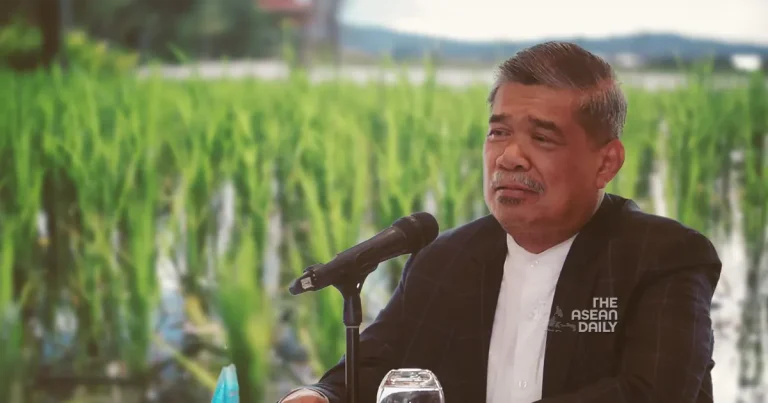3-10-2023 (KUALA LUMPUR) Malaysia’s government has moved to allay concerns over rice supplies in the country, urging citizens not to engage in hoarding following recent panic buying that resulted in empty shelves in supermarkets and grocery stores nationwide.
Agriculture and Food Security Minister Mohamad Sabu announced on Monday that the government would boost distribution to rural areas to address a supply issue sparked by the rising cost of imported rice. Malaysia, like many other nations, is grappling with escalating rice prices and dwindling supplies due to a 20% reduction in global rice supplies caused by India’s restrictions on rice sales.
Mohamad Sabu highlighted that locally produced rice in Malaysia is priced at 2.60 ringgit per kilogram, making it the most affordable in the region. However, the sole importer, Padiberas Nasional Berhad, raised the price of imported white rice by 36% on September 1. This price hike prompted many Malaysians to switch from imported rice to the cheaper local option.
Malaysia, with a population of over 32 million, imports about 38% of its rice needs and held discussions with India last week to explore options for lifting export restrictions.
The minister stressed that the increase in the price of imported rice is a consequence of the restrictions imposed by 19 countries, including India, to cater to their domestic needs. “Actually, we don’t have a shortage of rice in the country. It’s just that the price of imported rice has risen sharply… Many people have shifted to buying cheaper local rice,” he explained. He also urged citizens not to engage in panic buying and to purchase only what they need.
To address the situation, the government will enhance the distribution of local rice to rural areas. Additionally, the agricultural and food security ministry will provide a subsidy of 950 ringgit (approximately $202) per tonne for imported white rice in the states of Sabah and Sarawak starting from October 5.
Starting Tuesday, authorities will intensify surveillance of rice wholesalers and shops to prevent hoarding of local rice. Samples will be taken to ensure that sellers are not repackaging local rice as imported rice or blending the grains for higher profits, with severe action promised against those found to be doing so.
Mohamad Sabu held this press conference ahead of a meeting of Southeast Asian agriculture and forestry ministers scheduled for this week, commencing on Wednesday. During the meeting, discussions will focus on the rice crisis and food security. Ministers from the 10-member Association of Southeast Asian Nations will also meet their counterparts from China, Japan, and South Korea to address these pressing issues.




